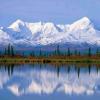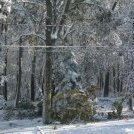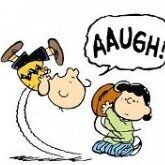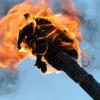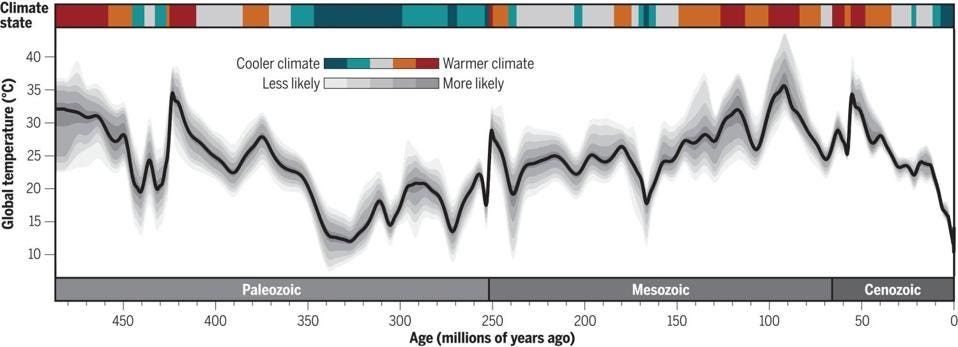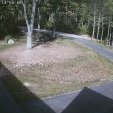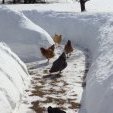All Activity
- Past hour
-
Mid 30s here this morning. I looked for frost on the rooftops this morning but didn't see any.
-
It glazes eyes over - apparently - in here, as I've tried to explain this aspect about nature - it doesn't report back like anyone gets it. It's probably me and my writing... Gradient is everything. Not sure why it doesn't resonate with the 'cognoscenti' of the site but ...heh. Anyway, warm water doesn't cause hurricanes ( I'm just using your post as a staging launch) it doesn't What is correlated to TC genesis is the qualitative state of the [empirically observed] sounding, which has also long been geophysical derived thermodynamically. The tropical sounding (identified by some dude, Jason Dunion) has warm air moist air from the surface to 500mb give or take. But as you head toward ~ 300 mb level the DPs drop way off: such that the wet-b temperature is relatively low. So, you have a statically unstable environment ( CAPE -heavy air), with warm dry air over top. This initially tends to resist intability in that high level ( which incidentally...due to thermal wind consideration, tends to outflow/divergence ...hence why we look for anticyclonic wind fields at high levels). The the divergence excites/forces UVM. The arriving warmer psuedo-adiabatic turrets turbulently mix, lowering the temp ... which adds to the instability/UVM above 500 mb/acceleration. There's bound to be exceptions. Of course...that's why there are 'phase transition' cyclones that quasi overlap. But should these soundings deviate significantly enough ...doesn't matter how warm the water is. No TC. The sounding as described above really outlines a thermodynamic gradient. Like every system that exists in the Universe, the greater the change between A vs B ( which is the gradient ), the more violent A --> B ... that's the difference between a stressed out coughing TC, versus Dorian 175 mph oil driller. Not talking about mechanical stress like shear and so forth. But there's no point in considering these latter mechanics if the thermodynamics are not satisfied to begin with.
-
Is that even possible?
-
Any snowy Dec (8”+ ) followed by dud? I’ll check now: Indeed, your idea verifies well! I have to go all of the way back to 1945-6 to find the last snowy Dec not having 16”+ Jan+! Dec had 15.6” and then they had only 12.1” Jan+. -Then I have to go back to 1926-7: 11.7” Dec; 10.6” Jan+ -1912-3: 11.4”; 3.1” -1902-3: 14.4”; 14.3” That’s it going back to 1869-70. Just 4 winters out of 43 (9%) with 8”+ in Dec failed to get 16” Jan+. For the other 113 winters (<8” in Dec): 46 (41%) Jan+ had <16” Jan+ *So, only 1 in 11 Jan+ were <16” when Dec 8”+ vs just over 4 in 10 when Dec 8”+! That’s a pretty strong correlation.* Longterm avg for is Jan+ is 22”.
-
Clouds FTL today
-
They'll have to clean up the penalties and sloppy play if they want to beat the packers on Thursday. The good news is they definitely left alot of meat on the bone but the game never really felt in doubt. I think their roster Is much more talented this year.
-
What relevance does this have in relation to the graph Jenkins posted? To get back to the topic at hand, his graph shows very clearly why DC's snowfall has trended downwards since the late 1800s. Global temperatures are up, and in the case of Washington DC, that means winter temperatures are up and snowfall is down. Seeing as there is no reason to believe that global, and therefore local winter temperatures will trend down in the coming decades, snowfall averages will continue to decrease. It's literally that simple. A graph extending back to 500mya has no relevance in regards to discussion about ongoing temperature and snowfall trends, other than to perpetuate your agenda.
-
Every time we dew ‘d we poured .like without exception. And when it rained. It poured
-
Today is the a anniversary of the Lee flooding
- Today
-
second year nina with a raging negative pdo. i hope you have a good supply of zoloft for this winter
-
I honestly did not think we had that much, Quite surprised actually.
-
Yeah, there’s been a weird corridor from Northern Connecticut. Northern Rhode Island to my area. Can’t really complain this summer. Stein tried to brown my grass for a few weeks, but if you don’t water that can happen. I can’t recall in all my life seeing complete desert like conditions at the lakes region versus things staying green here.
-
yep even the day 15 fantasy heat maps weren't there
-
-
I think we all know warm water is the fuel it needs, but it goes to show you how fickle these things are. You can have water that’s boiling below it, but if one atmospheric factor is off, you’re not getting much.
-
About what Ed got. We got pretty screwed with only 1"
-
Lake of fire?
-
The low of 41 at PIT this morning, while short of the daily record of 37, is tied for the 6th coldest low on or before September 8th, all of which occurred in the 1960s and 1980s. Last time we were this cold this early was 9/7/1988.
-
These last three weeks must have been miserable for you
-
We could be stein and burning by Oct here with no rains
-
It's officially cat space heater season. The best season!
-
Interesting. The much larger Great Lakes have dropped some but not to that extent. Obviously takes a lot more time for levels to change due to the total mass and large drainage basin. Looking at Huron-Michigan (technically a single lake system), the current value is the lowest for September since 2014, although from 1999 through 2014, every September was lower than the present. Conversely from 1967 through 1998, every September had a higher lake level than present with the exception of September 1990, which was 0.04 meters lower than this year. It looks like the well-known 1988 drought likely led to that brief period of low waters during an otherwise pluvial period. The Great Lakes almost always drop this time of the year, with annual minimum heights typically occurring in late winter and maximum heights in late summer. If it stays dry, that'll likely occur even quicker than climo averages. So I suspect the final value for September will be as low or lower than that reading from 1990 as the lake should continue dropping [especially if the current forecasts hold]. But it would probably take another year of lower precipitation to start reaching the lows of the early 2000s.
-

September 2025 OBS-Discussion centered NYC subforum
Sundog replied to wdrag's topic in New York City Metro
I remember that cold blast. I was supposed to fly to Greece on the 2nd but there was engine trouble on my plane and I had to leave the next day instead. Because of that I was able to catch that intense CAA and experience lows in the mid 50s the next morning when I would have otherwise missed them. -
Has the Holden storm from Saturday been EF rated yet?
-


